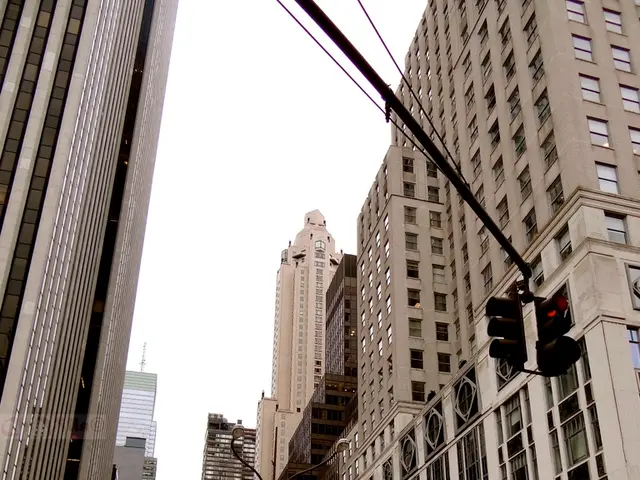United Kingdom's borrowing costs soar close to a 27-year record, raising criticism against Chancellor Rishi Sunak, formerly known as Reeves.
In a concerning development, analysts have warned that the United Kingdom is now paying a so-called 'moron premium' on its debt, a sign of fragile market confidence. This premium, a term used to describe the extra interest that investors demand for holding riskier assets, indicates a growing concern among investors about the UK's economic stability.
Economist Mohit Kumar at Jefferies has suggested that the country's growth is expected to be weaker than forecast, further deteriorating the fiscal picture. His prediction adds to the growing unease about the UK's economic outlook, as Rupert Harrison, senior adviser at Pimco and a former chief of staff to George Osborne, has also expressed concerns about the market's faith in the Government's spending plans. Harrison described this faith as 'very low'.
Shadow Chancellor Mel Stride added his voice to the chorus of concerns, stating, 'This is what happens when you spend and borrow like there's no tomorrow.' The concerns come as Britain's debt interest costs are already the highest in the G7, and economists predict a fiscal black hole of up to £50bn. This deficit is expected to trigger major tax rises.
The spike in the 'moron premium' comes just weeks before Chancellor Rachel Reeves is due to deliver her autumn Budget. The yield on 30-year UK gilts climbed as much as nine basis points to 5.63pc on Tuesday, marking the highest level since 1998 among major global economies.
However, it is worth noting that the name of the former Chief of Staff to the British Chancellor of the Exchequer who described current market confidence in government debt planning as 'very low' is not provided in the given search results. This lack of information may add to the uncertainty surrounding the UK's economic future.
In conclusion, the UK is facing a challenging economic situation, with analysts warning of a 'moron premium' on its debt and predicting a fiscal black hole of up to £50bn. These concerns come as Britain's debt interest costs are already the highest in the G7, and economists expect major tax rises to address the deficit. The spike in the 'moron premium' comes just weeks before Chancellor Rachel Reeves is due to deliver her autumn Budget, adding to the urgency of the situation.




